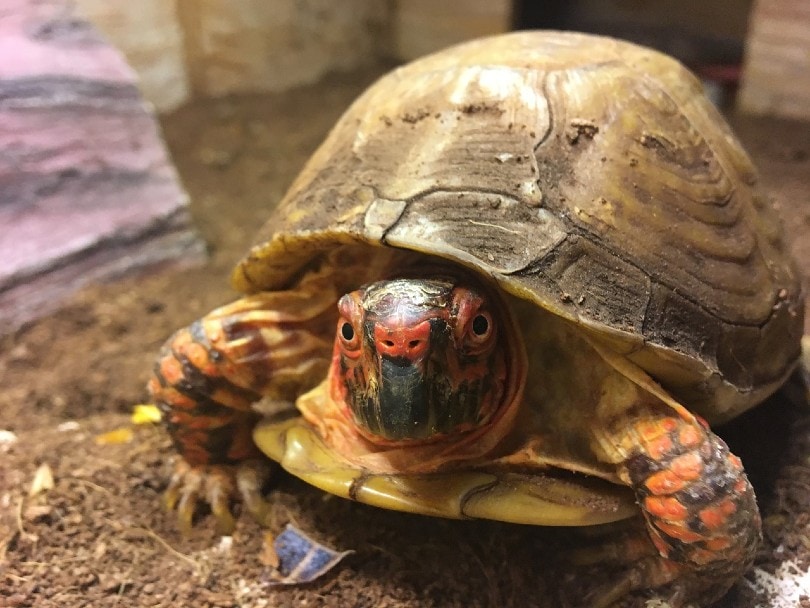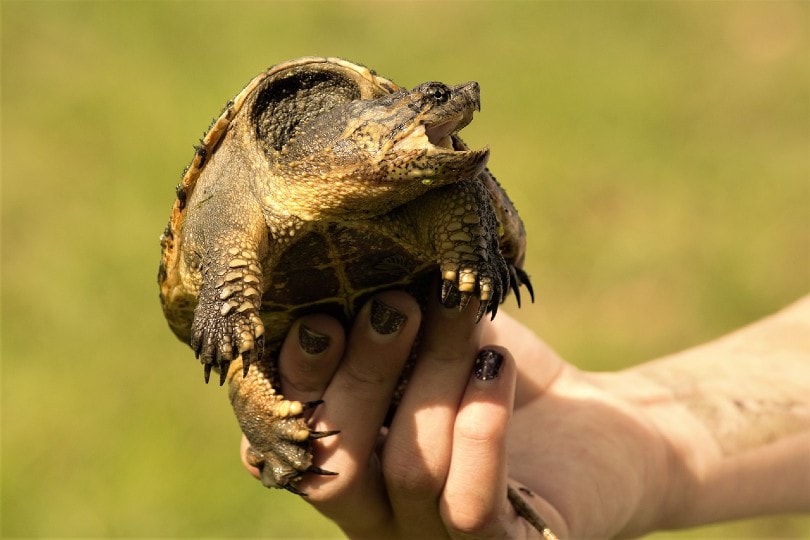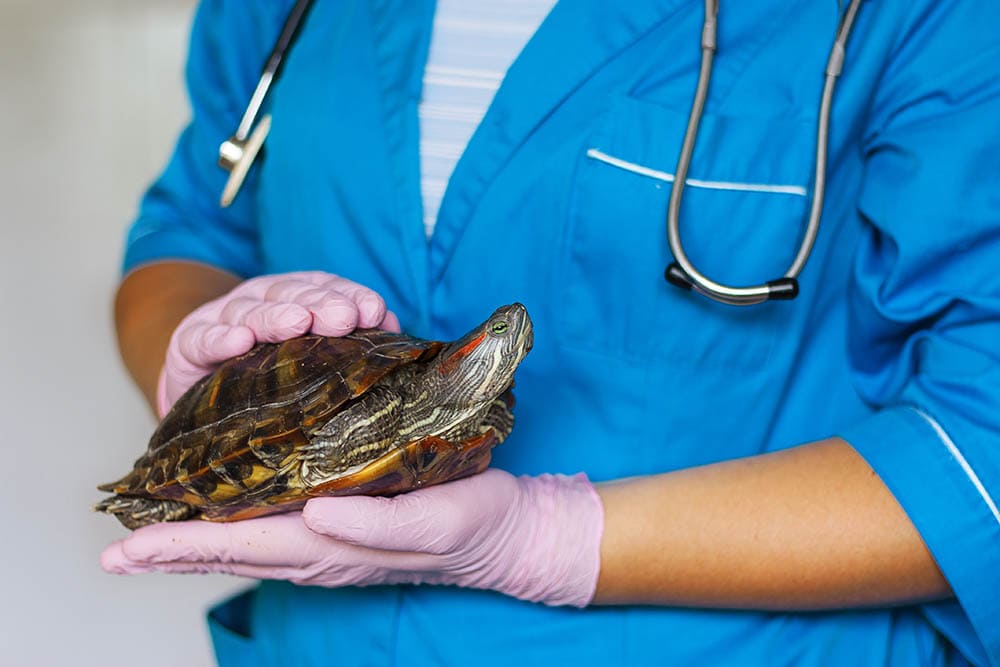
Turtles are traditionally quiet animals, but they do make some noises, such as hissing. If you notice your turtle hissing every once in a while, you probably don’t have anything to worry about. However, frequent hissing often means that your turtle is scared or frightened, though it is not a sound of warning.
To find out more about why your turtle is hissing, read on as we look at the two top reasons for a turtle hissing and things you can do about it. At the end, we mention other sounds you may want to listen to from your turtle. Let’s get started.
The 2 Reasons Why Your Pet Turtle Is Hissing
1. They Are Retracting Into the Shell

As we mentioned above, turtles hiss whenever they retract their head into its shell. If you hear your turtle hiss every once in a while, it is simply because the turtle is retracting into its shell. A turtle going into its shell does not necessarily mean it is stressed or scared—unless he’s doing it all the time.
In this case, you have absolutely nothing to worry about with your turtle. It is happy and healthy and is simply retracting into its home.
2. They’re Scared

If your turtle retracts into its shell often and in a very rapid motion, it is likely hissing because it is scared. A turtle’s natural defense mechanism is to go into its show whenever it detects danger. When this happens, the turtle naturally hisses from the motion.
You can often tell that your turtle is scared by noticing how often it hisses and when. If your turtle frequently hisses, especially in a rapid motion, it is likely scared. If you notice your turtle makes this noise and retracts every time that it’s handled, it is likely scared of you and you need to be more patient with it.
What Does It Mean If My Turtle Is Hissing?

Turtles do not have vocal cords, but they can make noises. The noise you may hear the most is the hissing sound. This hissing noise isn’t produced vocally. Instead, the sound occurs whenever air is expelled from the turtle’s lungs. Turtles don’t actively make this noise – it is just an involuntary noise they make.
Most often, turtles hiss whenever they retract their head back into their shell. Whenever your turtle does this, the air in its lungs is expelled rapidly, creating the hissing sound. Although the noise may sound a bit scary, it is nothing to worry about.
Instead, the hissing sound simply means that the turtle’s body is reacting and working as it should whenever it retracts its head. Some experts hypothesize that this hissing sound developed as a defense tactic in the wild. Even though the hissing is nothing to be scared of, it may sound menacing to a predator, helping to protect the turtle when it goes into its shell.
With that being said, some turtles hiss more than others. For example, snapping turtles are known to hiss quite a lot because they retract their head into their shells more often. More aggressive species generally hiss more than nonaggressive ones. Red Eared Sliders are also known for hissing quite a bit, especially when handled.
Should I Be Scared If My Turtle Hisses?
No. You have no reason to be afraid whenever your turtle hisses. Unlike other animals, a turtle’s hiss is not a sign of warning. It is an involuntary sound that they cannot control.
What You Can Do About It
As we learned above, the hissing sound is involuntary. It is simply the air expelling from the turtle’s lungs as it retracts into its shell. For this reason, you can’t technically do anything about the hissing sound since it is involuntary.
With that being said, the noise can be caused whenever the turtle becomes scared or alarmed. If your turtle hisses frequently whenever it is approached by people or finds itself in certain scenarios, it is likely scared. Try to remove the stressful or scary situation from the turtle. This won’t stop the turtle from hissing per se, but it will make it hiss less since it is no longer scared.
If you notice that your turtle hisses quite a bit whenever you go to pick it up, be gentle and cautious around it. Remember, turtles are prey animals and may view you as a potential predator. Slowly introduce the turtle to your hand and gradually expose it to more people and handling as it becomes more comfortable.
Other Sounds to Listen For

Hissing is not the only sound you may hear from your turtle. You may hear aquatic turtles make a clicking sound whenever they are basking. This is often a good sign, but make sure that your turtle is not being bullied by others if it is clicking a whole lot.
If you hear your turtle making a gurgling noise, you need to see an exotic vet immediately. Gurgling is a top sign for respiratory disease. Respiratory diseases are often caused by too low of temperatures within the turtle’s tank.
Final Thoughts
If you hear your pet turtle hissing, you don’t have to be alarmed or afraid that the turtle will bite you. The sound is simply created whenever the turtle retracts its head into its shell since air is expelled from the turtle’s lungs in the process.
Your turtle may make this sound whenever it slowly brings its head into its shell, but you are likely to hear it whenever your turtle is frightened. Alleviating the cause of stress will help your turtle make this noise less frequently, but there’s nothing you can do about the sound in and of itself since it is involuntary.
See also:
Featured Image Credit: LAM-Photography, Shutterstock








